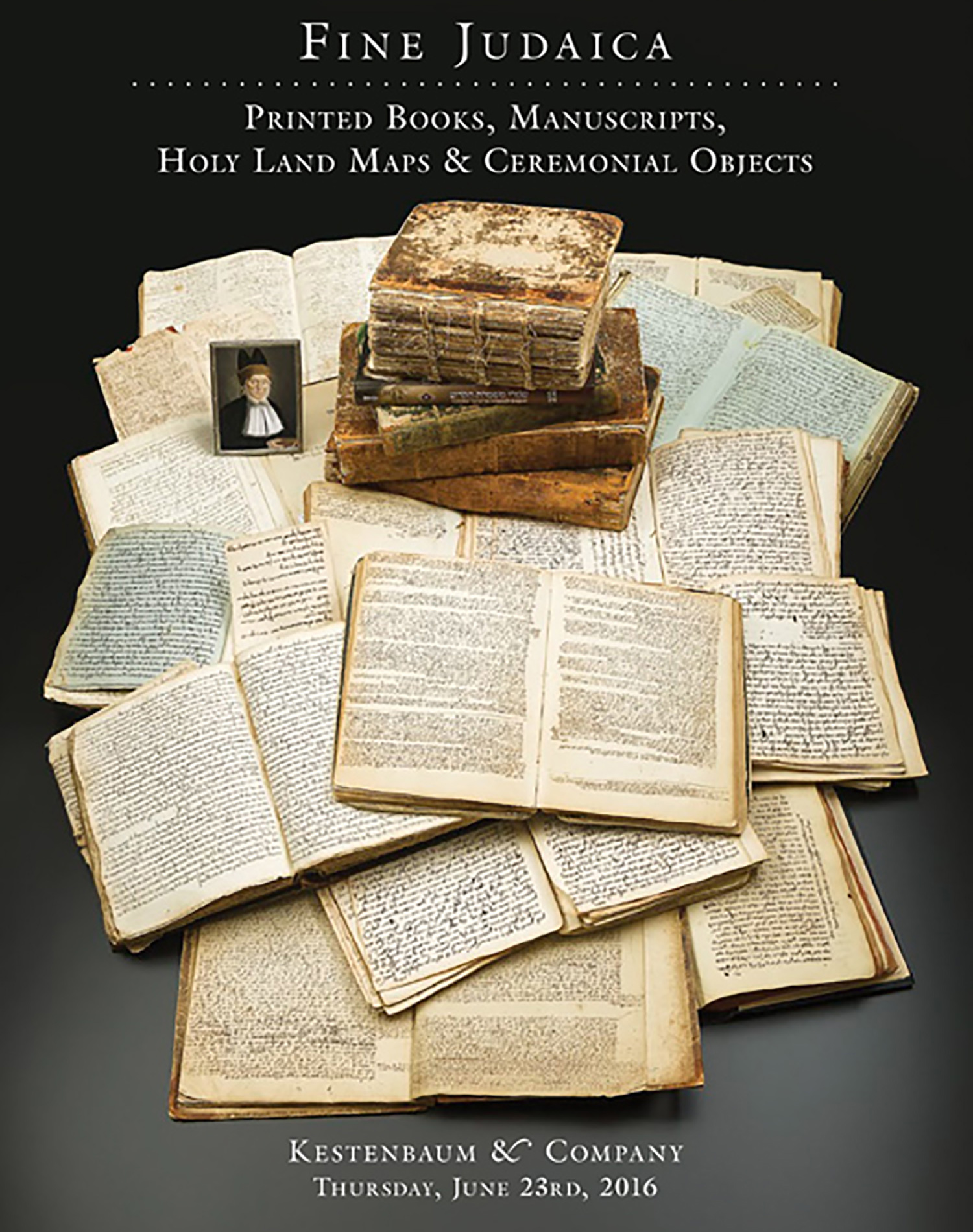Talmud Bavli. With commentary of Rashi, Tosaphoth, Piskei Tosaphoth; compendium by Asher b. Jehiel, commentary on the Mishnah by Moses Maimonides, plus index of decisions “Ein Mishpat.”

AUCTION 69 |
Thursday, June 23rd,
2016 at 1:00
Fine Judaica: Printed Books, Manuscripts, Holy Land Maps and Ceremonial Objects
Lot 177
(TALMUD, BABYLONIAN).
Talmud Bavli. With commentary of Rashi, Tosaphoth, Piskei Tosaphoth; compendium by Asher b. Jehiel, commentary on the Mishnah by Moses Maimonides, plus index of decisions “Ein Mishpat.”
Amsterdam: Immanuel Benveniste 1644-47
Est: $7,000 - $9,000
PRICE REALIZED $11,000
<<Miniature Sepher Torah written <<on vellum>> in an Aschkenazi square Hebrew hand.>>
Benveniste’s Talmud follows the Basle edition in layout and text, and likewise has no general title-page for the entire set. Aspects of the Giustiniani edition from Venice 1546-51 as well as the editions from Cracow 1602-5 and Lublin 1617-39 also served as templates for this Amsterdam Talmud, a fact attested to in this edition by the corrector Abraham ben Joshua of Worms in his colophon. Due to progressive notions of freedom of speech, there was minimal censorship of books in the Dutch Republic, thus Benveniste’s Talmud contains Tractate Avodah Zara in its entirety, including all the references to Christianity, to which the censors in other centers of Hebrew printing strongly objected. Benveniste did not issue his Talmud in chronological order. He produced most tractates as individual books with separate title page and foliation so that they could be sold singularly - <<hence a uniform and complete set is uncommon.>>
